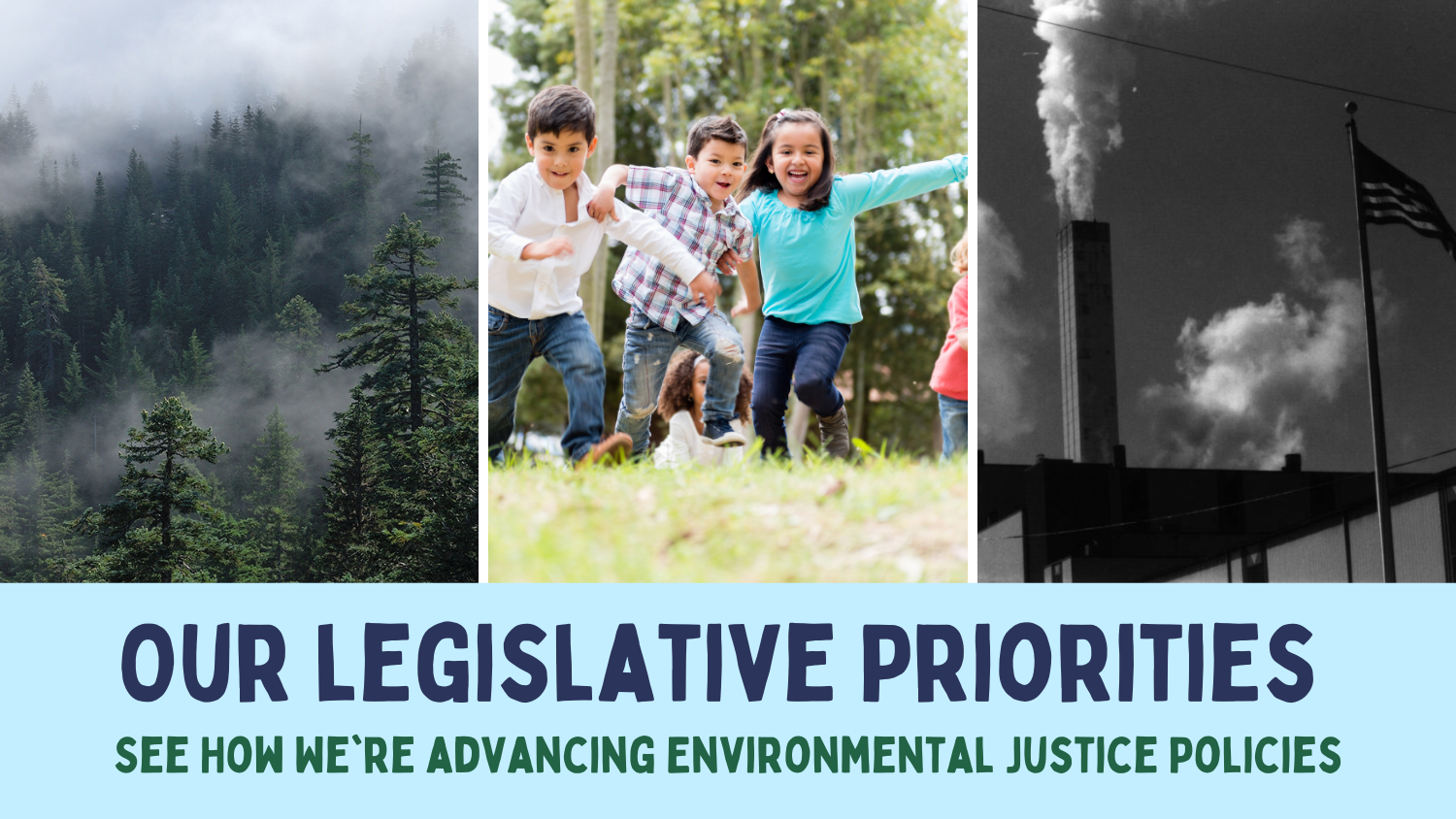Our 2023 Legislative Priorities
I am thrilled to report that we are gearing up for another very exciting year of advocacy and activism! Each year Beyond Toxics creates a list of priorities for the Oregon legislative session, working with our members and community partners to support strong public and environmental health policies for the state.
Our advocacy campaigns are rooted in environmental justice, putting equity and inclusion in all sectors of Oregon policy-making at the center of our work. I believe that, in order to build a thriving and just Oregon, we need to urge local legislators to vote in favor of strong and equitable policies that demonstrate an ongoing commitment to environmental stewardship and the advancement of human rights and dignity.
We are leading three priority initiatives during the 2023 Oregon legislative session. The issues addressed reflect areas of concern for frontline communities bearing the brunt of climate change and environmental degradation. Our team remains a steadfast advocate for all Oregonians, especially those living in underserved communities across the state.
These are our three legislative priorities for the 2023 session:
Natural Climate Solutions (SB 530)
Creating Natural Climate Solutions
We are working with a statewide coalition to put forward the Natural Climate Solutions bill, SB 530. This could be a game-changer for climate action in Oregon! SB 530 is a comprehensive bill that will help the state achieve its climate goals, support Oregon’s environmental justice communities and small landowners, improve equitable outcomes in the face of climate change, and protect our state’s vital natural resources.
If passed, SB 530 will…
In addition to all these climate benefits, implementing this bill will result in significant and measurable environmental benefits of cleaner air, healthier soils and protected drinking water.
“This ambitious piece of legislation prioritizes activities that protect or improve the ability of Oregon’s natural and working lands to sequester carbon. This is the necessary climate action our state needs and, if it is successful, it will put an amazing framework in place to address greenhouse gas reduction in our forests, agricultural lands, and rangelands.” ~ Teryn Yazdani, Staff Attorney and Climate Policy Manager
Read more about the Natural Climate Solutions bill
Toxic Free Schools (SB 426)
Pesticide Reduction and Improved Management Practices For Schools
Our second legislative priority is The Toxic Free Schools bill, SB 426, which is part of a three bill suite of environmental health bills lined up to protect children's health from exposure to toxic chemicals. The goal of SB 426 is to improve transparency around pesticide use in Oregon schools and provide funding to support schools integrated pest management planning. When Oregon's School Integrated Pest Management law was enacted in 2009, it did not allocate funding to the Department of Education or school districts to implement the law. As a result, many hazardous and unlawful pesticide applications have occurred on Oregon’s school campuses in the last thirteen years.
If SB 426 is passed, a proactive approach to adopting the safest pest management methods will ensure school children are not exposed to pesticides that can cause cancer and other negative health impacts.
If passed, SB 426 bill will…
“Ultimately, the Toxic Free Schools bill will provide resources to the Department of Education to support school districts in updating and implementing IPM plans and improve transparency under Healthy and Safe schools. The goal is to prevent children's exposure to pesticides on athletic fields, playgrounds, cafeterias and learning spaces.” ~ Jennifer Eisele, Pesticide Policy Manager
Read more about the Toxic Free Schools bill
Oregon's Medical Waste Incineration Act (SB 488)
Covanta waste incinerator, Chester, PA. Image courtesy of Chester Residents Concerned for Quality Living.
Air Quality Solutions
The third bill we are prioritizing is Oregon's Medical Waste Incineration Act, SB 488. This bill will close a regulatory loophole in Oregon’s air quality laws that allows a municipal waste (trash) incinerator to burn large amounts of medical and industrial waste, including waste trucked in from out-of-state. Each year, Oregon’s municipal waste incinerator burns more than 176,000 tons of municipal, medical and industrial waste. In recent years, this incinerator has steadily increased their tons of out-of-state hospital and medical waste every year! Burning medical waste, which is often plastics such as PVC, is known to emit more toxic pollutants than most municipal waste due to the complex nature of medical waste. As medical waste incineration increases, emissions of dioxin compounds and other dangerous chemicals also increase. Dioxin is a highly hazardous toxin linked to cancer and reproductive problems. Currently, the incinerator is regulated under the relatively lax rules despite burning a large percentage of out-of-state medical waste. Oregon can close loopholes in the law that will reduce emissions from waste incinerators. The large amounts of air toxics emitted from its stack has impacted human and environmental health around Marion county for over 30 years.
Now is the time to pass SB 488 to implement a much-needed update to Oregon clean air laws. Oregon must adopt stricter emission limits for incinerators burning large amounts of medical waste incineration. The result will be improved air quality for communities around waste incinerators now and into the future.
If passed, SB 488 will…
“In essence, Covanta Marion is a medical waste incinerator masquerading as a municipal waste incinerator by taking advantage of this loophole. Covanta Marion essentially doubles its profits by importing medical waste from out of state. The fact that Covanta Marion can burn medical waste and pollute while taking advantage of weak environmental regulations makes Oregon a dumping ground for the toxic pollution that other states don’t allow.” ~ Lisa Arkin, Executive Director
Read more about Oregon's Medical Waste Incineration Act
What To Expect
The Beyond Toxics team will fight to pass all three bills during the 2023 legislative session. Our goal is to keep advancing stronger policies that implement meaningful change for Oregon’s environmental policies and prioritize human and environmental health.
However, we do not work alone! We rely on support from local communities and people that are concerned about environmental and public health issues. You can help us get these bills passed this session!
Here’s how you can get involved right now…
Krystal Abrams, Communications Manager





